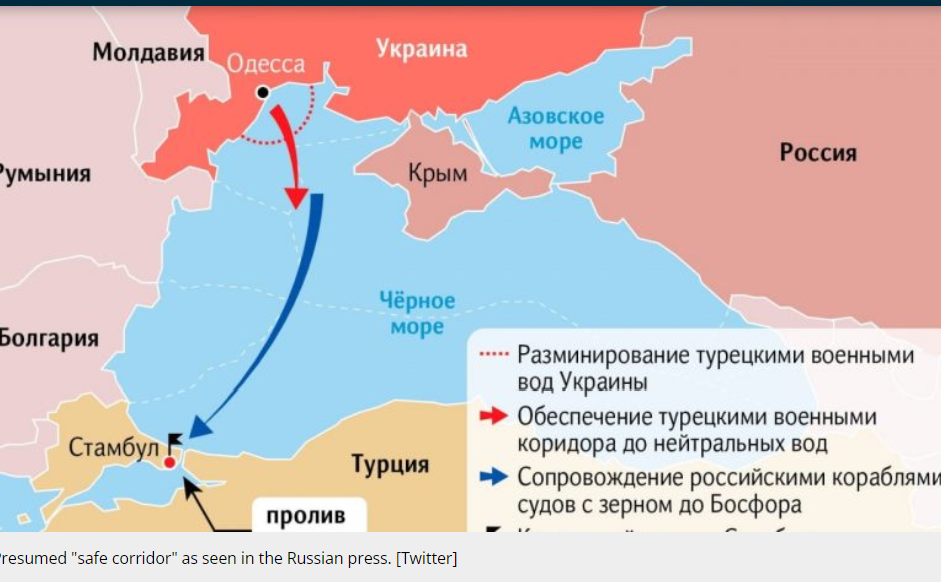Russia agreed on March 13 to extend the Ukraine grain export deal, but only for a further 60 days, in a proposal criticised by Kiev.
Following talks with the United Nations in Geneva, Moscow said it would not oppose prolonging the so-called Black Sea Grain Initiative aimed at easing the global food crisis, as had been feared.
But it only agreed to extending the deal for half of the 120-day period of the original accord.
Ukraine warned that “contradicts” the original agreement but did not reject the proposal.
Russia’s full-scale invasion of Ukraine in February 2022 saw Ukraine’s Black Sea ports blocked by warships until the deal, signed in July, allowed for the safe passage of exports of critical grain supplies.
Ukraine was one of the world’s top producers and the Black Sea Grain Initiative has helped soothe the global food crunch triggered by the conflict.
More than 24.1 million tonnes have been exported so far under the agreement, according to the UN.
The initial 120-day agreement struck with the UN and Türkiye was extended for a further 120 days in November, until March 18.
The Kremlin had cast doubt on whether it would agree to any fresh extension, citing concerns that the twin deal on Russian exports was not being respected.
It said Monday it needed to see “tangible progress” on the parallel agreement on unhindered Russian food and fertiliser exports, claiming Western sanctions exemptions were “essentially inactive”.
Moscow wants to see deeds, not words on upholding the second part of the package, Deputy Foreign Minister Sergey Vershinin said after Monday’s talks with top United Nations officials at the Palais des Nations UN headquarters in Geneva.
“The Russian side… does not object to another extension of the ‘Black Sea Initiative’ after its second term expiration on March 18, but only for 60 days,” Vershinin said in a statement.
“Our further stance will be determined upon the tangible progress on normalisation of our agricultural exports, not (in) words, but in deeds.
“It includes bank payments, transport logistics, insurance, unfreezing of financial activities and ammonia supplies via the Tolyatti-Odessa pipeline.”
Ukraine’s infrastructure minister said that Russia’s stance went against the agreement, but did not reject Moscow’s 60-day proposal.
hurriyetdailynews.com
